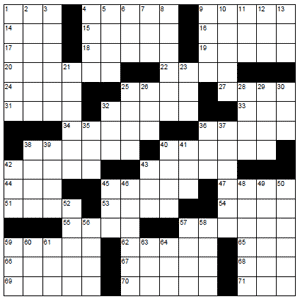
Volume 7, Issue 8, August 2010


It’s our pleasure to announce that Dr. Sushan Han DVM PhD has accepted the Anatomic Pathology tenure track Assistant Professor position and will be joining MIP on January 1st. Sushan received her BS in Wildlife Management and Veterinary Sciences from the University of Idaho and her DVM (cum laude) from Washington State. After a short stint in private practice, she completed a residency in anatomic pathology at Washington State and received a PhD in infectious disease/immunology in 2009. Her dissertation involved the analysis of helper T cell responses in cattle to infections by Anaplasma marginales, a very common tick-borne rickettsial parasite of ruminants. She is currently completing postdoctoral studies in the area of immunity and persistent infections in bovine model systems. As an instructor, Sushan has mentored students in necropsy and pathology rotations and ran a gross anatomy laboratory for sophomore vet students for which she was awarded a teaching excellence award. In her spare time she enjoys family, cycling, hiking, horseback riding, gardening and snowboarding – so the Northern Colorado lifestyle should be right up her alley. Welcome Sushan!
New Faculty Appointments
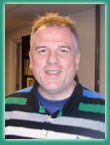
Effective July 1, MIP has another faculty member whose last name ends in ‘Z’ with the appointment of Dr. Alexander Franz as an Assistant Professor (Special Appointment). Alexander received his BS, MS and PhD degrees from the University of Kiel in Germany in the area of agricultural sciences/plant pathology. In 2001 he joined our AIDL group and began his studies on mechanisms of RNA interference in the mosquito Aedes aegypti and its role in modulating vector competence. In his new faculty role, he will continue this line of research on the foothills campus and is currently the PI on an R01 award. He has also lectured in MIP graduate courses on plant virology and transgenic insect technology. Welcome aboard Alexander!
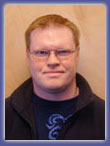
Effective July 1, Dr. Brian Geiss was appointed as an Assistant Professor (Special Appointment) in MIP. Highlights in the ‘Life of Brian’ include his Jayhawk past (graduating from the University of Kansas with a BS in Biology), a PhD from St. Louis University studying Herpes Simplex virus tegument proteins, and a postdoc on antivirals with Michael Diamond at Washington University. He came to CSU and the AIDL in 2005 and has been studying alphavirus biotechnology applications as well as the development of novel antivirals. His research is funded by a grant from the RM-RCE (on which he serves as PI) along with a role as Co-PI on several other projects. Notably, Brian has been very active in promoting undergraduate research since he arrived at CSU, serving as research advisor for 8 undergrads to date. He has also presented a variety of lectures in graduate virology courses. His lab is on the 4th floor of the Microbiology Bldg in the space that used to be occupied by Dr. Carlson (don’t worry – Brian’s office is MUCH neater!). Congratulations Brian!
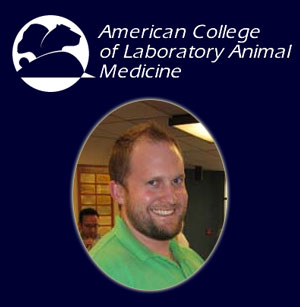
Congratulations to Matthew Rosenbaum, CSU's first Comparative Medicine Resident to sit for the lab animal boards---and he passed on his first attempt! This means he’s officially a diplomate of the American College of Laboratory Animal Medicine.
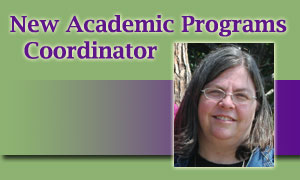
We are pleased to report that Lisa McCann has assumed the role of Academic Programs Coordinator for MIP. In this position Lisa will be responsible for the administrative coordination of undergraduate and graduate education programs.
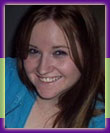
Heidi Runge, has been enlisted to help Lisa with administering the programs.
Please join us in welcoming Lisa and Heidi to their new roles!
MIP Research Funding:

MIP had another strong year in terms of extramural funding for its research efforts. According to the VP for Research’s Data Center, the MIP Dept. generated 111 extramural grants that brought in $24,383,977 for FY2010 (which ran from July 1, 2009 to June 30, 2010). To put that in perspective, its enough money to pay for Yankee pitcher C.C. Sabathia’s salary (the #2 highest salary in baseball for 2010), but we still need to raise another $9 million to pay for A-Rod. Overall, there are over 300 (301 to be exact) active MIP ‘53 projects’ on the CSU books that involve $181,851,040.66. Congratulations to all – your hard work, creativity and stick-to-it-ness in these challenging, single digit percentile grant funding times continues to pay off.
In the News...
Dr. Sue Vandewoude was highlighted in the July 21 Boulder Daily Camera article entitled, "CSU researchers will study felines in Boulder's back yard".

Jacqueline Scapa defended her thesis entitled, "Disruption of Blood Vasculature in the Pathogenesis of Tuberculosis Lesion Necrosis" on August 23rd. Her advisor is Dr. Randall Basaraba.
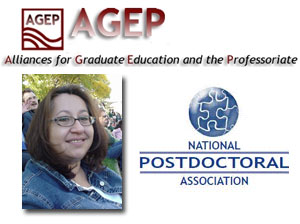
Lorene Martinez, a graduate student who works with Bob Jones in the MRL, has been accepted to attend the UCSF AGEP POSTDOC BOOTCAMP on September 13-14. This event is sponsored by the National Science Foundation’s Alliances for Graduate Education and the Professoriate (AGEP) in collaboration with the National Postdoctoral Association (NPA). The purpose of this two-day interactive workshop is targeted to students from historical underrepresented populations and is designed to provide comprehensive information and practical strategies so that students can obtain the best possible Postdoc position.

Sindbis virus usurps the cellular HuR protein to stabilize its transcripts and promote productive infections in mammalian and mosquito cells
Kevin Sokoloski, Alexa Dickson, Emily Chaskey, Nicole Garneau, Carol Wilusz and Jeff Wilusz
Cell Host and Microbe 19:196-207 (August 2010)
Cell’s contain a powerful RNA decay machinery that plays a major role in regulating gene expression. Believe it or not, ~50% of the changes in gene expression you observed last week in your microarray or deep sequencing experiment are likely due to altered RNA stability rather than transcription. The decay machinery also does an impressive job in policing gene expression, rapidly degrading incorrect or misfolded RNAs to maintain quality control of transcripts inside the cells. We like to think of the decay machinery as the cell’s ‘Fritzler’ (aka building proctor). When a viral RNA enters the cell, surely it must be recognized as ‘unwanted’. Therefore why don’t viral RNAs simply get rapidly degraded by the cellular RNA decay machinery along with other unwanted transcripts? In our Pub of the month for August, Kevin, Alexa, Emily, Nicole et al provide a compelling mechanistic answer to this question for the alphaviruses (which include viruses of biodefense importance like Venezuelan Equine Encephalitis Virus).
This paper makes essentially three major points. First, alphaviruses bind to the cellular HuR protein during infections of either human or mosquito cells through a fairly well conserved U-rich region in the 3’ untranslated region of their RNAs. Second, viral infection induces the normally nuclear HuR to move into the cytoplasm, increasing the amount of the protein in the cytoplasm for viral transcripts to steal. Finally if you reduce the availability of the HuR protein to the virus (for example by knocking down levels of the protein using RNA interference), you significantly reduce both the relative stability of viral RNAs during infection as well as the yield of new viral progeny that are made as the result of an infection.
There are three reasons why we chose this paper as our coveted MIPublication of the Month® for August. First, in elucidating a novel interaction between viral RNAs and a cellular protein that regulates mRNA stability, the article demonstrates a generally conserved and significantly overlooked feature of an alphavirus infection. Other viruses face the same conundrum in how to deal with the RNA decay machinery during infection – and it will be interesting to see the myriad of ways that have evolved for viruses to maintain the stability of there RNAs. Second, if the lab can figure out how to keep alphaviral RNAs from binding the cellular HuR protein, they might be able to use this as a broad spectrum antiviral strategy. Finally, the work nicely demonstrates the synergy in the department when a team of RNA molecular jockeys can successfully use the strength and resources of the AIDL group to learn/re-learn virology and put out a paper in a high-impact journal in the field. Of course one cannot rule out a fourth reason that the paper was highlighted: the MIPnews editor in charge of picking these papers may simply be a self-serving, egotistical maniac who would never pass up an opportunity to toot his own horn…..
 MIP Publications
Late July 2010 - Early Aug 2010
MIP Publications
Late July 2010 - Early Aug 2010
Sharpe SA, McShane H, Dennis MJ, Basaraba RJ, Gleeson F, Hall G, McIntyre A, Gooch K, Clark S, Beveridge NE, Nuth E, White A, Marriott A, Dowall S, Hill AV, Williams A, Marsh PD. Establishment of an aerosol challenge model of tuberculosis in rhesus macaques and an evaluation of endpoints for vaccine testing. Clin Vaccine Immunol. 2010 Aug;17(8):1170-82.
Hunt AR, Frederickson S, Maruyama T, Roehrig JT, Blair CD. The first human epitope map of the alphaviral E1 and E2 proteins reveals a new E2 epitope with significant virus neutralizing activity. PLoS Negl Trop Dis. 2010 Jul 13;4(7):e739.
McFarland CT, Ly L, Jeevan A, Yamamoto T, Weeks B, Izzo A, McMurray D. BCG vaccination in the cotton rat (Sigmodon hispidus) infected by the pulmonary route with virulent Mycobacterium tuberculosis. Tuberculosis (Edinb). 2010 Jul;90(4):262-7.
Logue CH, Phillips AT, Mossel EC, Ledermann JP, Welte T, Dow SW, Olson KE, Powers AM. Treatment with cationic liposome-DNA complexes (CLDCs) protects mice from lethal Western equine encephalitis virus (WEEV) challenge. Antiviral Res. 2010 Aug;87(2):195-203.
Yu G, Wu X, Dietrich MA, Polk P, Scott LK, Ptitsyn AA, Gimble JM. Yield and characterization of subcutaneous human adipose-derived stem cells by flow cytometric and adipogenic mRNA analyses. Cytotherapy. 2010 Jul;12(4):538-46.
Kumar A, Dalton C, Cortez-Cordova J, Schweizer HP. Mini-Tn7 vectors as genetic tools for single copy gene cloning in Acinetobacter baumannii. J Microbiol Methods. 2010 Sep;82(3):296-300.
Mima T, Schweizer HP. The BpeAB-OprB efflux pump of Burkholderia pseudomallei 1026b does not play a role in quorum sensing, virulence factor production, or extrusion of aminoglycosides but is a broad-spectrum drug efflux system. Antimicrob Agents Chemother. 2010 Aug;54(8):3113-20
O'Toole D, Van Campen H. Abortifacient vaccines and bovine herpesvirus-1. J Am Vet Med Assoc. 2010 Aug 1;237(3):259-60.
Sokoloski KJ, Dickson AM, Chaskey EL, Garneau NL, Wilusz CJ, Wilusz J. Sindbis Virus Usurps the Cellular HuR Protein to Stabilize Its Transcripts and Promote Productive Infections in Mammalian and Mosquito Cells. Cell Host Microbe. 2010 Aug 19;8(2):196-207.


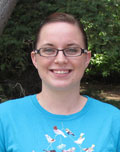 | Rebecca Crew |
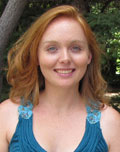 | Katherine Hartmann |
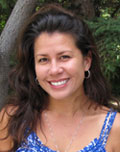 | Theresa Kurisu |
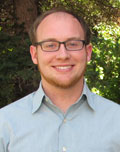 | Jonathan LeCureux |
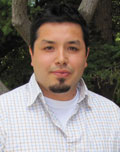 | Luis Morua |
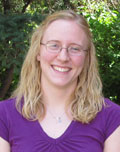 | Kara Mosovsky |
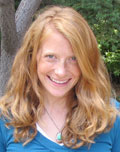 | Noelle Noyes |
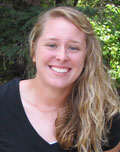 | Kate Rhodes |
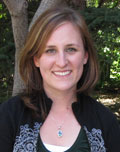 | Sarah Sheldon |
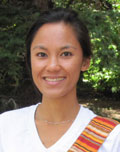 | Medalyn Supnet |
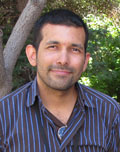 | Julio Valdiviezo |
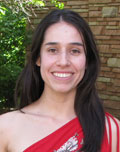 | Paulina Zurita |

After 4 years, Carol Wilusz is stepping down as the Faculty Seminar Coordinator. A big thanks goes to Carol for all her work over the years bringing in quality speakers!
Alan Schenkel has volunteered to be the new Coordinator and with his new leadership comes a new date and time for seminars. Faculty Seminars will now be held on Wednesdays at 4:00pm in Pathology Room 103
Check out the Fall 2010 Faculty Seminar Schedule online.

Advanced Veterinary Bacteriology
MIP681A
The target student population for enrollment in MIP681A Advanced Veterinary Bacteriology includes residents in microbiology, pathology and clinical sciences, graduate students in MIP and other departments, and DVM-PhD and PVM students who have acquired general knowledge of veterinary bacteria and their diseases. The course will focus on providing new and advanced information on factors such as mechanisms of pathogenesis at the molecular and cellular levels; epidemiology and clinical presentation of disease; laboratory diagnostic techniques; and methods of control and prevention for veterinary bacterial pathogens.
MIP700 - Topics Course
Cellular Factors that Restrict Viral Replication
Fall 2010
VandeWoude/Rovnak
Recent studies of viral pathogenesis and host:virus adaptation have determined that a number of intracellular gene products play important roles in limiting pathogen infection via unique innate mechanisms, including (1) enzymatic modification of viral nucleic acids (APOBECs); (2) inhibition of viral capsid uncoating (TRIM5, cyclophilin); (3) prevention of viral particle release from the cell surface (Tetherin); and (4) endogenous viral element interference with exogenous viral replication. This topics course will provide overviews of this emergent arm of innate immunity and includes lectures from several guest lecturers with seminal findings in this area.
MIP700 - Topics Course
Current Issues in Autoimmune Disease
Spring 2011
A. Avery
This class will examine the mechanisms and pathogenesis of autoimmune diseases. The first 2 – 3 weeks of the semester will be devoted to understanding the mechanisms protecting us from autoimmune disease, including central and peripheral T and B cell tolerance, and regulatory T cell biology. For the remainder of the semester we will examine individual autoimmune diseases with an emphasis on how they develop despite tolerance mechanisms, and how autoimmune results in clinical disease.
New Student Rep
The Graduate Education Committee has a new student representative! Katie Propst has been elected to serve on the committee as the MS/PhD Student Representative.

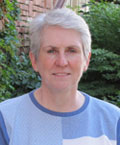 | Hi, I am Ida Tieman, the new Administrative Assistant in MIP, and will be at home in the Pathology Building. I graduated from CSU way back when, and am glad to be back and in Fort Collins once again. I am most recently from Green River, WY, where I served as a Deputy Clerk of District Court. My husband, Bob, works for the USPS at the Old Town Station. Our daughter, Jessica, is a music teacher in Tacoma, WA, where she lives with husband and baby girl (the most amazing granddaughter ever!). I enjoy being walked by our black lab, quilting, RVing and reading. |
Yes folks, that's right - we have Ida working in Path. MIPnews needs to double check its sources, but rumor has it we are currently looking into hiring Michael Rowe to work at Ida and Pat Holloway to work in Micro.

The Colorado Veterinary Medical Association 2010 Convention will be held:
September 23-26
Embassy Suites in Loveland
See the CVMA website for more details and to register.
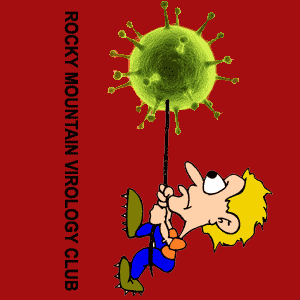
Rocky Mtn Virology Club
Sept 24-26
Pingree Park, CO
The featured speaker will be Dr. Bennie Osburn, DVM, Ph.D.
Register online at www.RockyMountainVirologyClub.org

Oct 22-23
University of Wyoming, Laramie

Teresa Krueger will be participating in this year's Alzheimer's Memory Walk with her husband, Michael, and son James. The walk will take place in Fort Collins on September 12th. If you are interested in supporting Teresa's efforts please go to her donation page to participate.

Are you doing something interesting that you would like to share with others?
Do you want to share your ‘MIP Experience’ with others?
Do you want to add ‘Blog Contributor’ to your resume?
If you answered "YES" to any of the above questions, then you should consider being an MIP Blogger! It's EASY, It's FUN, and It's a great way to share your MIP Experience with the world! Any MIP'er can contribute, Research Associate, Postdoc, Student, Faculty or Staff. Everyone has a unique MIP Experience that people want to read about.
Contact Erin Napier if you are interested, or if you know someone who you think would be a good candidate.
A big "THANK YOU" to Erin Breland, Alex Griffith, and Becca Timmons for being MIP's inaugural bloggers! They did an excellent job!

Congratulations to John and Mary Poor on the birth of their first child!
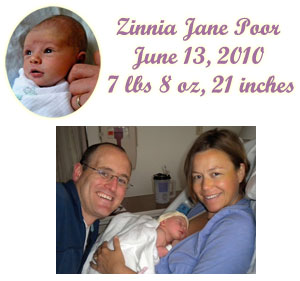

"Lisa, if you don't like your job you don't strike. You just go in every day, and do it really half-assed. That's the American way."
~Homer Simpson

Pathology office staff work from a classroom while the main office is repainted and recarpeted
- Alternative Captions
- The Dept Chair search is over - Jeanette found them all!
- Regardless of how popular the class is, looks like all MIP courses will be ‘standing room only’ this year.
- If 712 lions attack the main campus, don't fret - MIP will tame ‘em.
- On second thought, Jeanette wishes she never came up with the eco-friendly idea of creating a compost pile of office furnishings
- MIP uses its offices to illustrate the ‘PhD principle’ - Piled Higher and Deeper.
- Submit your own

The Department Administrative Staff will be participating in a retreat on Friday, Sept 17 from 11:30am to 5:00pm. Lorie Smith, the Director of Training & Organizational Development will be the keynote speaker.
The department offices will remain open during this time being staffed by our fantastic student hourly employees.
New Grant Awards
 Anne Lenaerts, "Polymeric Nano-Drug Delivery System for Tuberculosis (TB) Drugs", Council for Scientific and Industrial Research
Anne Lenaerts, "Polymeric Nano-Drug Delivery System for Tuberculosis (TB) Drugs", Council for Scientific and Industrial Research
 Barry Beaty, "Sustainable Control of Ae Aegypti and Epidemic Dengue", NIH-Allergy & Infectious Diseases
Barry Beaty, "Sustainable Control of Ae Aegypti and Epidemic Dengue", NIH-Allergy & Infectious Diseases
 Lon Kendall, "Immunotolerance and Immune Regulation by Mouse Parvovirus", ACLAM Foundation
Lon Kendall, "Immunotolerance and Immune Regulation by Mouse Parvovirus", ACLAM Foundation

- NIGMS and NIAID announce Program Project Grant Opportunity
NIGMS and NIAID have put out an announcement for Program Project Grant applications to encourage scientists working on different aspects of a similar problem to collaborate. Over a 5-year period, program projects may receive total direct costs of up to $6.5 million If you request more than $500,000 in direct costs in any year, you must receive approval from NIGMS/NIAID staff before submitting your proposal. You are strongly encouraged to speak to a relevant program staff member before submitting a P01 application. For more information, see the NIGMS Program Project Funding Policies Web site.
- IMPORTANT: Elimination of ‘Correction Window’ for NIH applications in January 2011
The 2-day "error correction window" to fix NIH system-identified errors or warnings after the submission deadline is being eliminated on January 25, 2011. You will still have up to 2 business days to view the application image and submit a corrected/changed application, as long as you do so before the deadline. In light of this change it will be really important to make sure that you submit an application early (before the submission deadline) so that you and your signing official have an opportunity to address any errors or warnings.
- NIAID Interim payline for FY2011: 8th percentile
(odds of finding a four-leafed clover on the first try: 10,000 to 1)
| Mon | Tue | Wed | Thur | Fri |
| 2 | 3 | 4 | 5 | 6 |
| 9 | 10 | 11 | 12 | 13 |
| 16 | 17 MIP Grad Student Orientation 9am Micro C116 |
18 | 19 Grad School Orientation 9am LSC Theatre |
20 |
| 23 Classes Begin! |
24 Faculty Seminar 12-noon 103 Path |
25 | 26 | 27 |
| 30 | 31 |
| Mon | Tue | Wed | Thur | Fri |
| 1 Faculty Seminar 4pm 103 Path Microscopy Seminar 8am 101 DMC |
2 | 3 | ||
| 6 Univ Office Closed |
7 | 8 Faculty Seminar 4pm 103 Path Microscopy Seminar 8am 101 DMC |
9 | 10 |
| 13 | 14 | 15 Faculty Seminar 4pm 103 Path Microscopy Seminar 8am 101 DMC |
16 | 17 |
| 20 | 21 | 22 Faculty Seminar 4pm 103 Path Microscopy Seminar 8am 101 DMC |
23 | 24 Rocky Mtn Virology Mtg begins |
| 27 RM-RCE mtg in Estes Park |
28 RM-RCE mtg in Estes Park |
29 Faculty Seminar 4pm 103 Path Microscopy Seminar 8am 101 DMC |
30 |
Do you have NEWS or PICTURES you would like to share?
Send In your ideas or newsworthy items. Contributions make the Newsletter better!
MIP Home • CVMBS Home • CSU Home
